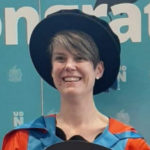Early Childhood Studies BA Welcome Pack
Welcome to BA Early Childhood Studies 2024.
A very warm welcome to Early Childhood Studies. We are delighted that you have chosen to study with us. Our programme is designed to support you in making a real difference to the lives of children and their families, and to equip you for a stimulating and rewarding future in early childhood. Our friendly and highly experienced multi-professional staff team are eager to support you on your personal and academic journey.
You will be exploring, over the next three years, a range of topics that relate to working with young children and their families and will also have the opportunity to go on placement to see how this learning is played out in practice. We will prepare you with the knowledge and skills you need to work in the field of Early Childhood, and help you to progress to the career path of your choosing.
You will learn through a range of experiences, at University and on placement, which blend together to ensure you develop academic and professional skills and a strong value base.
Each module is made up of ‘Learning Events’ which involve a whole range of activities that take place before, during and after formal sessions on the days you are in University.
You will have other reading, online activities and work for your assignments to complete on your Private Study days.
We hope you have a happy, successful and rewarding time studying at the University.
Your Programme Leader

Dr Tanya Richardson
Professional Lead for Childhood, Youth and Families | Programme Leader for Early Childhood Studies | Senior Lecturer in Education (Childhood, Youth and Families
tanya.richardson@northampton.ac.uk
Induction Information
This is your induction timetable with sessions starting on Monday 16 September. If you have any questions please do not hesitate to contact Tanya Richardson: tanya.richardson@northampton.ac.uk.
Preparation/Specialist Equipment
As part of your Early Childhood Studies degree you will be asked to complete Case Study Research on a child. This will support planning, preparation and focus for the studying Child Development module in year one(EYS1122) and the Promoting Children’s Development in year 2 (EYS2119).
The objectives of the study are:
- To inform and support your knowledge of child development
- To develop and sustain professional, ethical and sensitive relationships with children and parents
- To learn and reflect on the practice of studying children
- To begin to develop your skills as a researcher.
What do families need to know?
Parents will need to know that:
- You will negotiate mutually convenient times to visit.
- You value all the insights they can give you into their child and that you will be interested in what he/she does and how he/she is learning and developing between your visits.
- You will keep in regular contact by telephone or other means to
- That with their permission you will record observations and information parents may give you
- Any material you collect will be recorded so that the child and the family cannot be identified as you will use pseudonyms instead of real names.
- You will not keep anything in your file without showing it to them.
What do you need to do next?
Identify a child to study – do this as soon as possible before your start University. Please don’t worry if you do not know any children, we can provide an alternative, but where possible we encourage you to find a child you know to study as this does make your life easier moving forward.
What will we do to support you?
In the first few sessions we will help you to:
- Consider ethical issues involved in studying
- Write a ‘Statement of Intent’ illustrating how your study will conform to ethical guidelines
- Complete the ethics form
- Complete a risk assessment
- Gain informed consent from the parents
- Work with the parents on a background ‘history’ of the child
- Begin collecting data (observations, transcripts of conversations with parents, annotated photographs and pictures)*
- Keep your tutor informed of your progress by bringing in your Case Study details to all focus sessions
- Make sure you evaluate your observations and other records of the child’s development
Equipment
There are two books we would like you to buy, if you can, before you join the course to support your learning and your assignments:
- Santrock, J. (2019) Children. 14th ed. New York: McGraw Hill Education.
- Silberfeld, C. (2022) The Early Childhood Graduate Practitioner Competencies. London: Sage Publications.
Please make sure you buy the most up to date edition where possible.
Enhancing skills, building networks and engaging in the wider University community
Mentors
During your time at the university, especially during your first year, you may have some questions as to what to expect.
We have a group of mentors available to you who have just completed their first year of the Early Childhood Studies course and are able to offer you support and guidance if needed. They have received training on being a mentor and are therefore very well placed to offer help should you need it.
They will come into some of your sessions so hopefully they will become familiar faces as you settle into university life.
Mentor details

Maddison Erswell-Fox
Instagram: Mads.fox123
Hi. My name is Maddison Erswell-Fox, and it is so nice to welcome all of you!
I joined the ECS course straight after completing my A levels in Psychology, Sociology and Health and Social Care as I wanted to further my knowledge on how children develop and learn. I entered the course, having the goal of becoming a primary school teacher in mind. However, after placement I have become more interested in social work. This is the good thing about this course, you do not have to start knowing what you want to do at the end of your 3 years.
As part of university, there are many sports and societies on offer. During my first year, I joined Self Defence, and this was the best decision I made coming here because it has given me a load of opportunities to meet new people and make friendships.
Being in your exact position last year, I know that coming to university can be daunting and overwhelming at first, but all our lecturers will help you settle in, just like they helped me. As well as this, I want you to know that I am always here as your mentor if you ever need help or support, or even just want a chat! If you want to contact me, you can do this via email or Instagram.
One piece of advice I would give is to enjoy your first year because it goes so quickly. Before you know it, it will be over, and you will be starting your second year!